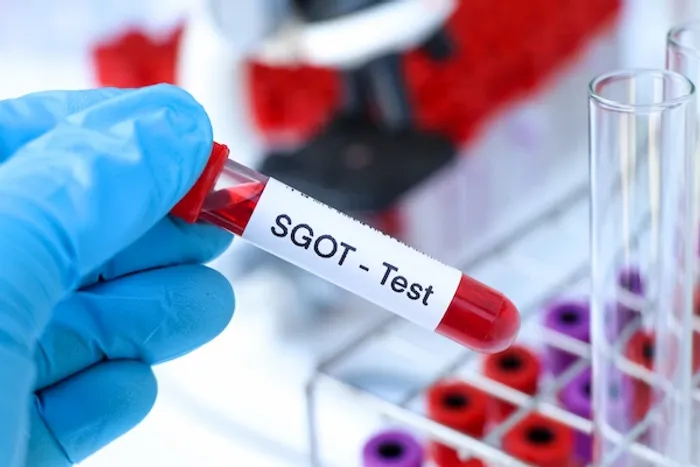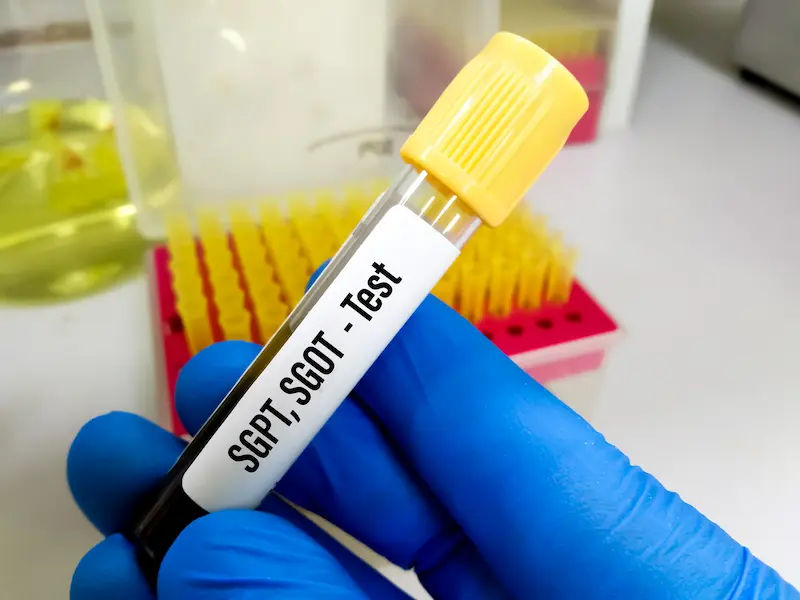SGOT Test Overview and Results Discussion
Understand the SGOT test, its role in evaluating liver and heart health, the testing process, and how to interpret results for better diagnosis and treatment planning.

Written by Dr. Siri Nallapu
Reviewed by Dr. Rohinipriyanka Pondugula MBBS
Last updated on 14th Aug, 2025

Introduction
If you’ve recently been advised to take an SGOT test, you might be wondering what it is, why it’s needed, and what your results mean. Don’t worry; this article will guide you through everything in simple terms so you can understand your health better.
What is an SGOT Test?
The Serum Glutamic-Oxaloacetic Transaminase (SGOT) test, also known as Aspartate Aminotransferase (AST) test, measures the level of an enzyme called AST in your blood. This enzyme is mostly found in the liver, heart, muscles, and kidneys. When cells in these organs are damaged, AST is released into the bloodstream, and higher levels can indicate a problem.
Consult a Gastroenterologist for the best advice
Why is the SGOT Test Done?
Your doctor may recommend an SGOT test if you have symptoms of liver or heart disease, such as:
- Fatigue or weakness
- Loss of appetite
- Nausea or vomiting
- Yellowing of skin or eyes (jaundice)
- Dark urine or pale stools
- Abdominal pain or swelling
- Muscle pain or weakness
It is often done along with other liver function tests like ALT (Alanine Aminotransferase), ALP (Alkaline Phosphatase), and bilirubin to get a complete picture of your liver health.
Understanding SGOT Test Results
Normal SGOT levels typically range between 8 to 40 units per litre (U/L), but this can vary slightly depending on the lab.
What Do High SGOT Levels Mean?
Higher-than-normal SGOT levels may indicate:
- Liver damage (due to hepatitis, fatty liver, cirrhosis, or alcohol abuse)
- Heart conditions (like a heart attack or heart failure)
- Muscle injury (from trauma, intense exercise, or muscle diseases)
- Pancreatitis (inflammation of the pancreas)
- Certain medications (like statins, painkillers, or antibiotics)
If your SGOT is slightly elevated, it could be due to minor issues like a recent workout or mild infection. However, very high levels (several times above normal) may suggest serious liver or heart problems.
What Do Low SGOT Levels Mean?
Low SGOT levels are usually not a concern and don’t indicate any health issues. However, extremely low levels may be seen in people with vitamin B6 deficiency or kidney dialysis patients.
What Should You Do If Your SGOT Levels Are Abnormal?
If your test results show high SGOT levels, don’t panic. Your doctor will likely recommend:
Further tests (like ALT, ultrasound, or ECG) to identify the exact cause.
Reviewing medications that might be affecting your liver.
Lifestyle changes (such as reducing alcohol, eating a balanced diet, and exercising).
Get Your Health Assessed
Tips to Maintain Healthy SGOT Levels
Follow these simple yet effective tips to keep SGOT levels in check:
1. Eat a Liver-Friendly Diet
- Include fruits, vegetables, whole grains, and lean proteins.
- Avoid processed foods, excessive sugar, and fried items.
- Drink plenty of water to help flush out toxins.
2. Limit Alcohol Consumption
- Excessive alcohol can damage liver cells, raising SGOT levels.
3. Exercise Regularly
- Moderate exercise helps maintain a healthy weight and liver function.
4. Avoid Unnecessary Medications
- Some painkillers and supplements can harm the liver; always consult a doctor before taking them.
5. Get Regular Check-ups
- If you have a history of liver or heart disease, routine tests can help monitor your condition.
When to See a Doctor?
It’s best to consult a doctor immediately if you experience symptoms like:
- Persistent fatigue
- Unexplained weight loss
- Severe abdominal pain
- Jaundice (yellow skin/eyes)
Early diagnosis and treatment can prevent complications.
Final Thoughts
An SGOT test is a simple blood test that helps assess liver and heart health. While abnormal results can be concerning, they don’t always mean a serious problem. Follow your doctor’s advice, make healthy lifestyle changes, and get regular check-ups to stay on top of your health.
Consult a Gastroenterologist for the best advice
Consult a Gastroenterologist for the best advice

Dr Rohit Sureka
Gastroenterology/gi Medicine Specialist
15 Years • MBBS, DNB General Medicine, DNB Gastroenterology
Jaipur
Apollo 247 virtual - Rajasthan, Jaipur

Dr. Umakanth Eskala
Gastroenterology/gi Medicine Specialist
16 Years • DM (GASTRO)
Visakhapatnam
Apollo 24|7 Clinic - Andhra Pradesh, Visakhapatnam
Dr. Harsha Mandalapu
Gastroenterology/gi Medicine Specialist
8 Years • MBBS, MD (General Medicine), DM (Gastroenterology)
Tenali
Harsha Gastro, Liver & ENT Centre, Tenali

Dr. Vijay Kumar Rai
Gastroenterology/gi Medicine Specialist
18 Years • MBBS , MD (General medicine) , DM (Gastroenterology)
Kolkata
LivGastro, Kolkata
Dr. Sultan Nawahirsha
Gastroenterology/gi Medicine Specialist
1 Years • MBBS, MD ( MEDICINE), DM (MED, GASTROENTEROLOGY)
Chennai
MGM HEALTH CARE, Chennai
Consult a Gastroenterologist for the best advice

Dr Rohit Sureka
Gastroenterology/gi Medicine Specialist
15 Years • MBBS, DNB General Medicine, DNB Gastroenterology
Jaipur
Apollo 247 virtual - Rajasthan, Jaipur

Dr. Umakanth Eskala
Gastroenterology/gi Medicine Specialist
16 Years • DM (GASTRO)
Visakhapatnam
Apollo 24|7 Clinic - Andhra Pradesh, Visakhapatnam
Dr. Harsha Mandalapu
Gastroenterology/gi Medicine Specialist
8 Years • MBBS, MD (General Medicine), DM (Gastroenterology)
Tenali
Harsha Gastro, Liver & ENT Centre, Tenali

Dr. Vijay Kumar Rai
Gastroenterology/gi Medicine Specialist
18 Years • MBBS , MD (General medicine) , DM (Gastroenterology)
Kolkata
LivGastro, Kolkata
Dr. Sultan Nawahirsha
Gastroenterology/gi Medicine Specialist
1 Years • MBBS, MD ( MEDICINE), DM (MED, GASTROENTEROLOGY)
Chennai
MGM HEALTH CARE, Chennai


.webp)